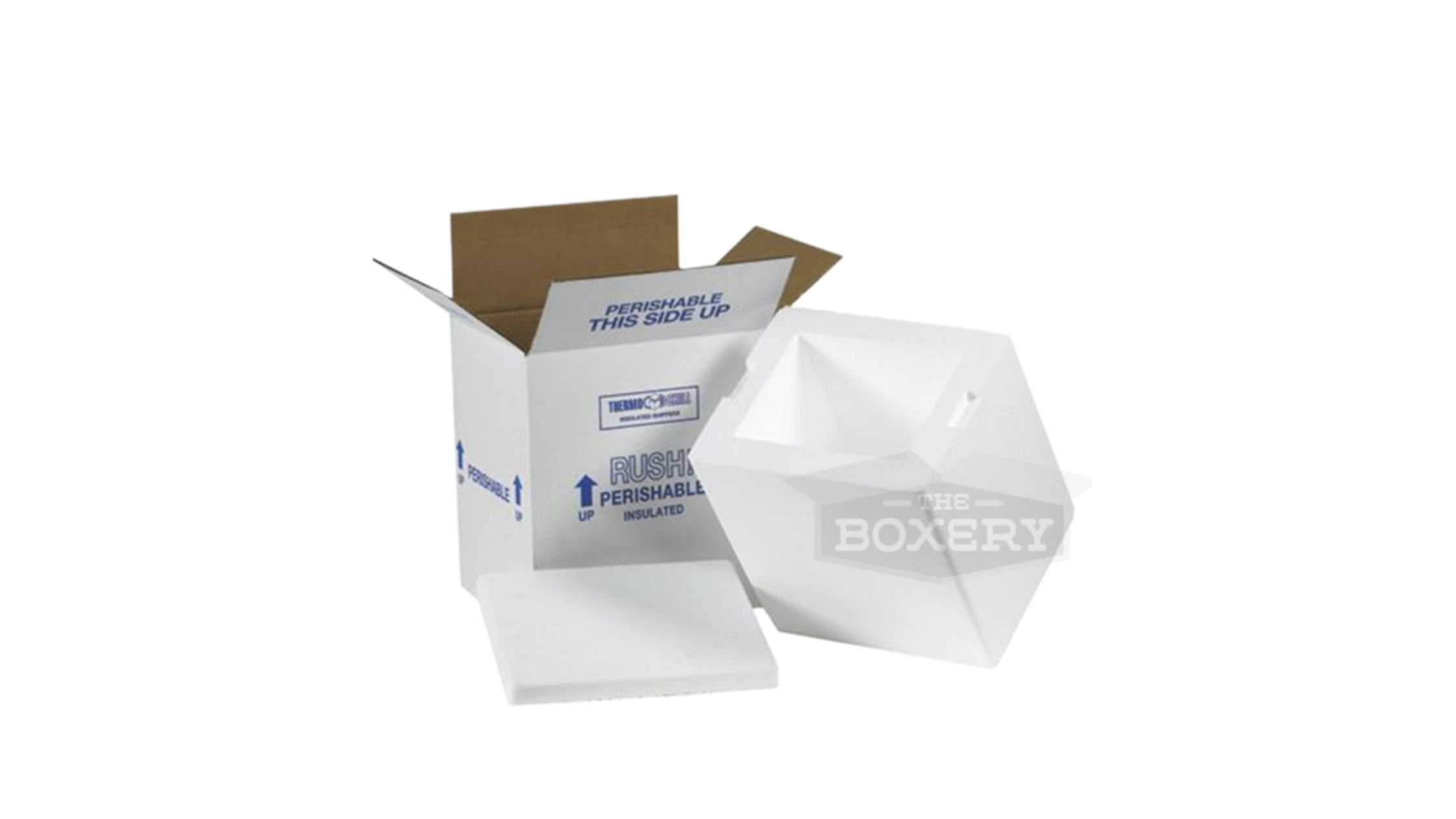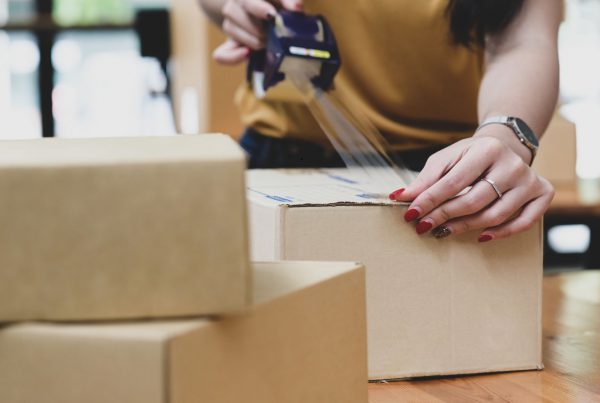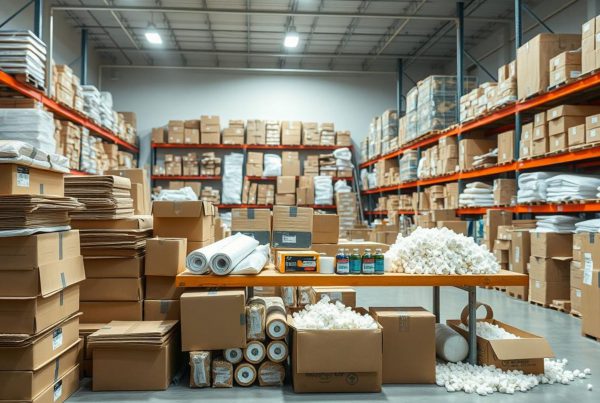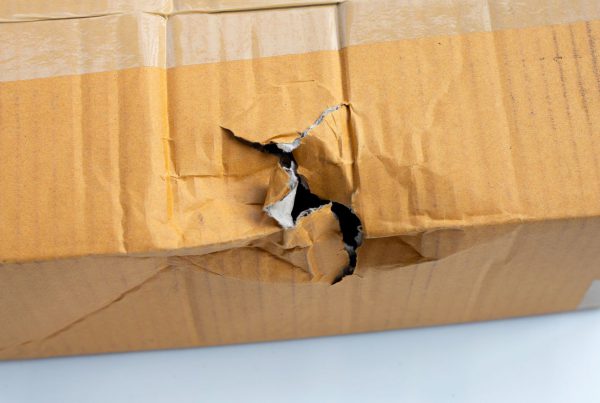Have you ever wondered how some products remain intact during shipping, while others get damaged? I have. More than once. It usually comes down to choosing the correct box and packing method—especially for food and medicine. Keep it cold, keep it dry, keep it steady. Simple to say—harder to pull off. At The Boxery, we treat packaging like mission gear because that’s how you keep customers safe, happy, and coming back.
Examining various types of cooling, insulation, and moisture control helps businesses safeguard their products. And honestly, it helps your brand too. People remember when the seafood arrives fresh or the vaccine vials land stable and intact. I have seen both sides.
Key Takeaways
- Understanding industry-specific shipping needs is vital for successful product delivery.
- Temperature control is essential in preserving the quality of food and pharmaceuticals.
- Regulatory compliance impacts the choice of shipping materials.
- Customized shipping box solutions can address the unique challenges of various industries.
- Effective packaging plays a key role in maintaining customer satisfaction.
Understanding the Importance of Industry-Specific Shipping Boxes
Industry-specific shipping boxes are designed for sectors such as food and pharmaceuticals. The goal is simple: keep products safe and in good condition during shipping. That means keeping things dry and at the right temperature, even when the route gets messy.
They help maintain high standards of product safety. Following the right rules matters for consumer health and your reputation. I’ve had audits where the packaging spec sheet saved the day.
Defining Industry-Specific Shipping Needs
Every industry has its own shipping needs. For food, it’s keeping things fresh and stopping spoilage. For pharmaceuticals, it’s about maintaining efficacy—no hot spikes, no freeze shocks. Understanding these needs helps you select the right shipping boxes and add-ons.
Impact on Product Safety and Integrity
Product safety is non-negotiable. Any damage during shipping can harm quality and trust. Moisture is sneaky; it wrecks labels, cartons, and confidence. When conditions get rough, durable, well-sealed packaging and, when applicable, waterproof shipping boxes help ensure products arrive as intended.
Meeting Regulatory Compliance
Moving sensitive goods requires adhering to strict rules, particularly for items related to health. Industry-specific boxes should meet these guidelines to avoid penalties and protect end-users. Labeling, insulation specs, and documented temperature profiles all matter more than people think.
Food Shipping Boxes and Their Unique Requirements
Shipping fresh food has its own set of challenges. Food shipping boxes need to control temperature and resist moisture. Miss either, and quality suffers. Do both, and you’ll see fewer returns and happier customers.
Temperature Control for Perishables
Maintaining food at the correct temperature is crucial for safe shipping. Perishables crave steady conditions. Use insulation, gel packs, and intelligent routing to avoid swings when you design your pack-out, plan for the real world, and keep an eye on your shipping boxes temperature stability range so that what you ship is what arrives.
Moisture Resistance and Its Importance
Keeping food dry matters just as much. Excessive moisture can damage cartons and compromise product quality. Choose liners, wraps, and cartons with the right shipping boxes moisture resistance rating: minor detail, big difference.
Case Studies: Successful Food Shipment Examples
Companies that utilize smart food shipping strategies experience significant improvements. I watched a fresh produce shipper reduce spoilage by over a quarter simply by increasing insulation thickness and spacing gel packs more effectively. Not fancy—just thoughtful.
Pharmaceutical Shipping Boxes: Ensuring Safety and Efficacy
In pharmaceuticals, stability is everything. Pharmaceutical shipping boxes protect sensitive medicines and vaccines by keeping the pack-out stable, labeled clearly, and documented. No drama, just consistency.
Importance of Temperature Stability Range
Every drug has a known safe range. Too hot or too cold, and it’s no good. That’s why we design around a realistic transit window—with hold times, handoffs, and a margin for weather. Data loggers help, but good design enables more.
Materials Used in Pharmaceutical Shipments
Choosing the right materials ensures that drugs remain safe and effective: insulated containers, thermal liners, and cold packs are placed where they are most effective. Boxes that arrive from The Boxery often feature foam interiors paired with sturdy outer cartons, providing a reliable shell around a delicate payload.
Industry-Specific Shipping Box Solutions
Temperature-controlled shipping boxes ensure that products remain safe and of high quality during transport. Each industry has its own unique details to address. If you need even tighter control, consider well-insulated temperature controlled boxes as your baseline, then layer in gel packs and liners as required.
Types of Temperature-Controlled Shipping Boxes
There are many types, each made for specific ranges and products. Insulated shippers for food and meds; gel pack boxes for perishables; and full cold-chain systems with monitors for complex routes. Select the simplest setup that meets your needs. Complexity adds risk.
Custom Solutions for Different Industries
Food service and pharmaceutical industries often require custom sizing and components. Personalized dimensions reduce movement and damage. Specialized materials (including eco-forward options) keep temperatures steady without adding unnecessary weight. Branding on outer cartons can help with identification and handling.
Insulated Shipping Boxes: A Game Changer in Temperature Control
Insulated shipping boxes changed how we ship sensitive products. The Boxery units combine a foam interior box and lid with a rugged 200# white corrugated exterior—clearly labeled with “Rush,” “Perishable,” and “This Side Up” for optimal handling. It’s not overkill; it’s insurance.
Benefits of Insulated Packaging
Temperature stability reduces spoilage and maintains high quality. Versatility means a single platform can handle a range of items. And here’s the kicker: fewer claims and fewer re-ships save real money. Not glamorous, very effective.
Applications in Various Industries
It’s not just food and meds. Chemicals, cosmetics, and even certain electronics benefit from controlled temperatures. When your margin depends on the condition at arrival, insulation is your friend.
Frozen Food Shipping Boxes: Protecting Quality During Transit
Keeping frozen foods safe during shipping is critical for both suppliers and buyers. Well-built frozen food shipping boxes pair insulation with the correct number of cold packs to maintain temperature throughout the longest leg.
The Role of Cold Packs in Shipping
Cold packs do the heavy lifting. Place them to create an intentional cold dome around the product, not just randomly on top. Right count, right placement. That’s the trick.
Design Features for Frozen Goods
Look for insulation that keeps cold air in and heat out, ventilation paths that evenly distribute cold air, and durability to withstand rough conveyors. Strong outer cartons protect the interior foam, which protects the food. Layers. Simple.
Choosing the Right Shipping Boxes: Key Considerations
Choosing boxes isn’t guesswork—it’s a short checklist you repeat every time. Product needs, route length, temp targets, and handling risk. Write it down. Follow it.
Evaluating Shipping Boxes’ Moisture Resistance Rating
Check how well your packaging guards against humidity and moisture. If your items are sensitive (electronics, food, meds), a stronger rating keeps them safer from the start. Always confirm the spec sheet for the shipping boxes’ moisture resistance rating you plan to use.
The Role of Customization in Shipping Solutions
Custom sizes, added inserts, and better liners help protect awkward or fragile items. It also speeds up pack-out on the floor. Minor tweaks compound over thousands of shipments.
Conclusion
Understanding the needs of food shipping and pharmaceuticals is key. These areas need special boxes that keep products safe and intact. Its more than convenience; its how you hit quality targets and stay compliant. When in doubt, build a simple pack-out that keeps temps steady and moisture in check—then test it.
About The Boxery
The Boxery is more than a packaging supplier. Think of us as your shipping partner. Huge inventory, fast shipping from multiple US warehouses, secure payments, and friendly help when you need to size a kit or pick gel packs. We listen, then recommend. That’s the job.
FAQ
What types of shipping boxes are suitable for food products?
For food, use boxes that control temperature, resist moisture, and are durable. Use insulation and cold packs sized to the route. This keeps food fresh and prevents spoilage, so your products arrive in great shape.
Why are insulated shipping boxes necessary?
Insulated boxes maintain items within the target temperature range for longer, reducing spoilage and improving consistency during transit. They’re vital for perishables and medicines, especially during seasonal heat or cold snaps.
How does The Boxery ensure the safety of pharmaceutical products during shipping?
The Boxery provides boxes and components that adhere to strict guidelines, including proper insulation, clear handling labels, and sturdy exteriors that resist crushing. The goal is a stable environment from dock to door.
What features should I look for in frozen food shipping boxes?
Look for designs that can hold cold packs effectively, with insulation that actually performs for the whole route. Venting for even airflow and durable outer cartons helps keep the temperature locked in.
How do I evaluate the moisture resistance rating of shipping boxes?
Check the manufacturer specs and, when possible, sample test under real conditions. Humidity and condensation can sneak in—so pick the rating that matches your risk tolerance and product sensitivity.
Can I customize my shipping boxes for specific needs?
Yes. Custom sizing, inserts, and insulation options help tailor protection to your exact product dimensions and shipping routes. It’s often the fastest way to minimize damage and expedite packing.
Are there shipping boxes designed for temperature-controlled items?
Absolutely. From basic insulated shippers to comprehensive cold-chain kits with monitoring, you can select the solution that matches your required hold time and budget.
What materials are used in the construction of pharmaceutical shipping boxes?
Common builds pair foam interiors (for insulation) with sturdy corrugated outer cartons. Thermal liners and cold packs complete the system to maintain steady temperatures during transport.





Recent Comments